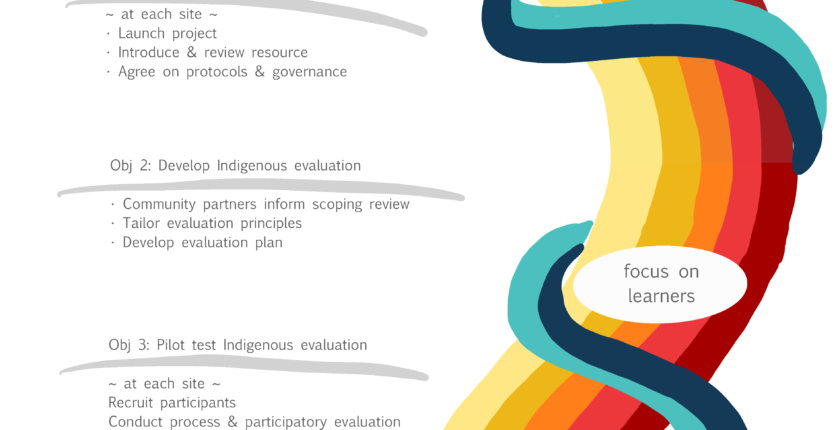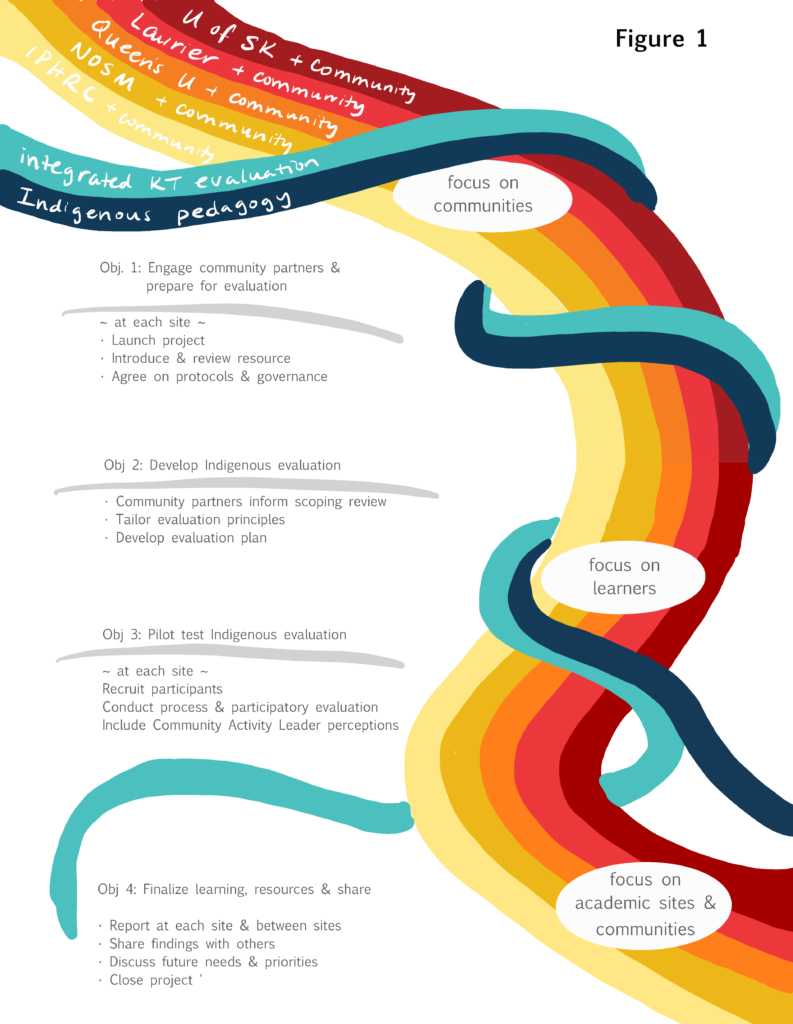A community-centred research approach to develop and conduct Indigenous evaluation of an open access training resource
- March 29, 2021
- Posted by: ICRP

Inuit, Métis and First Nations (“Indigenous”) populations are strong and resilient, with unique cultures that guide them in everyday life. The connections with land and community, and sense of self-reliance, are evident in their self-governance and decision-making. Indigenous populations also have a high health burden. For example, tuberculosis and HIV/AIDS disproportionately affect Indigenous populations. These health inequities are the direct result of Canadian government policies that undermine opportunities for Indigenous populations to address community-level needs and improve outcomes (Truth and Reconciliation Commission of Canada call to action #18). Research is a vital source of information to develop policies and support Indigenous sovereignty, but biases of colonial or Western-oriented research approaches often fail to develop evidence that is useful and relevant to Indigenous Peoples. Research that aligns with Indigenous research principles and is conducted with highly engaged knowledge user partners (those who will use or be impacted by the research) is more likely to develop knowledge that is useful, relevant and applicable in policy. Research in partnership with Indigenous Peoples is urgently needed to develop knowledge that can address health inequities. Many researchers are unfamiliar in working with Indigenous people, nations, and communities. Few resources guide them in conducting research that is equitable, inclusive, and respectful of diverse Indigenous knowledge, practice, and research sovereignty.
We are an interdisciplinary Indigenous and non-Indigenous team of researchers, many of whom have been involved in the development of an online open access resource, called “Indigenous Community Research Partnerships” (“training resource”). Our training resource is intended for researchers and researchers-in-training who are on a journey of working with Indigenous communities in partnerships, including those with little or no experience or who are experienced and appreciate that there is more to learn. The training resource will guide researchers on how to foster a deeply engaged and principled approach to research that reflects, advances, and meets expectations for ethical, collaborative, and culturally supportive research with Indigenous Peoples, communities and organizations. Our goal is to use a community-centred research approach that privileges Indigenous ways of knowing and doing. We will design and conduct an Indigenous evaluation of the training resource for researchers who will work with Indigenous Peoples. We also intend to assess the process of how we work together as a team. It is crucial that we evaluate the training resource in ways defined as meaningful by Indigenous community members. We aim to ensure that researchers are educated in ways that are most likely to benefit community members. Program evaluation is typically conducted using Western-oriented knowledge and processes; instead, we will develop and implement an Indigenous evaluation of the training resource. We have designed a community-centred project to meet Indigenous community priorities at community-academic partner sites (Univ. Saskatchewan, Indigenous Peoples’ Health Research Centre, Northern Ont. School of Medicine, Wilfrid Laurier Univ., Queen’sUniv.).
Our objectives are to:
1) Engage community partners, prepare for Indigenous evaluation of the training resource;
2) Develop an Indigenous evaluation for the training resource;
3) Pilot test the Indigenous evaluation of the training resource;
4) Assess our community-centred, multi-site collaborative research study.
Our work will impact the conduct of community-centred research, privilege Indigenous ways of knowing and doing and educate learners in Western-oriented academic/institutional settings.

